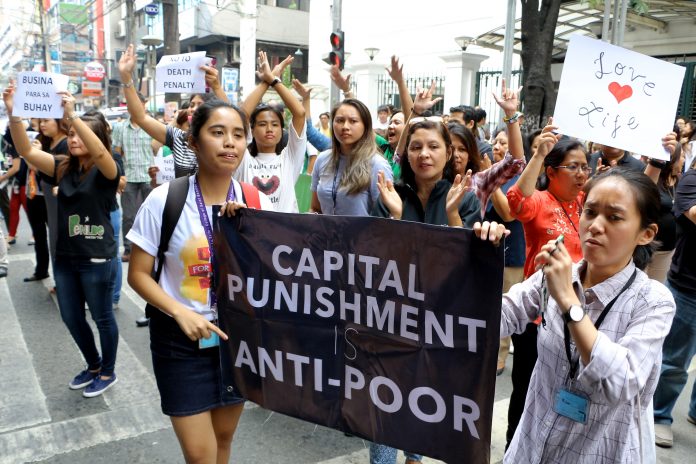The Episcopal Commission on Prison Pastoral Care rejected the proposal of President Rodrigo Duterte to revive the death penalty in the country.
“With the death penalty, justice is nothing but punishment and never a way to reform the offender,” said Bishop Joel Baylon of Legazpi, chairman of the commission of the Philippine bishops’ conference.
“True justice is restorative never punitive,” he said, adding that capital punishment, in whatever form, is never a deterrent to crime.
Meanwhile, Bishop Ruperto Santos of Balanga, vice chairman of the Episcopal Commission on Migrants and Itinerant People, said that instead of reviving the death penalty, the country should reform its justice system.
“What we must do is to reform our justice system that no one is above the law. There is no selective justice, no sacred cow, too,” he said.
Bishop Santos said the country will lose its “moral authority” to beg for the life of imprisoned overseas Filipino workers if it revives the capital punishment.
“How can we appeal to a foreign country for our co-national sentenced to death penalty for life commutation or amnesty if we practice death penalty?” said the bishop.
“With the death penalty we lose moral authority and credibility to beg for life, to save lives of our imprisoned [migrant workers,” said Bishop Santos.
Bishop Arturo Bastes, retired prelate of Sorsogom, said Catholic morality teaches that “only God can take away human life and that criminals should be given a chance to amend their life, the greatest gift of God our creator.”
He said the country will also lose the honor of one of the nations that condemned the death penalty if capital punishment is revived.
During his State of the Nation Address on Monday, July 27, President Duterte pressed for the revival of the capital punishment through lethal injection.
The Philippines abolished the death penalty under its 1986 constitution, but the charter gave Congress the power to reinstate it for heinous crimes.
Capital punishment returned under the administration of former president Fidel Ramos, but was abolished again under president Gloria Macapagal-Arroyo.
The Philippines is a signatory to the Second Optional Protocol to the International Covenant on Civil and Political Rights, which commits countries to abolishing the death penalty.









